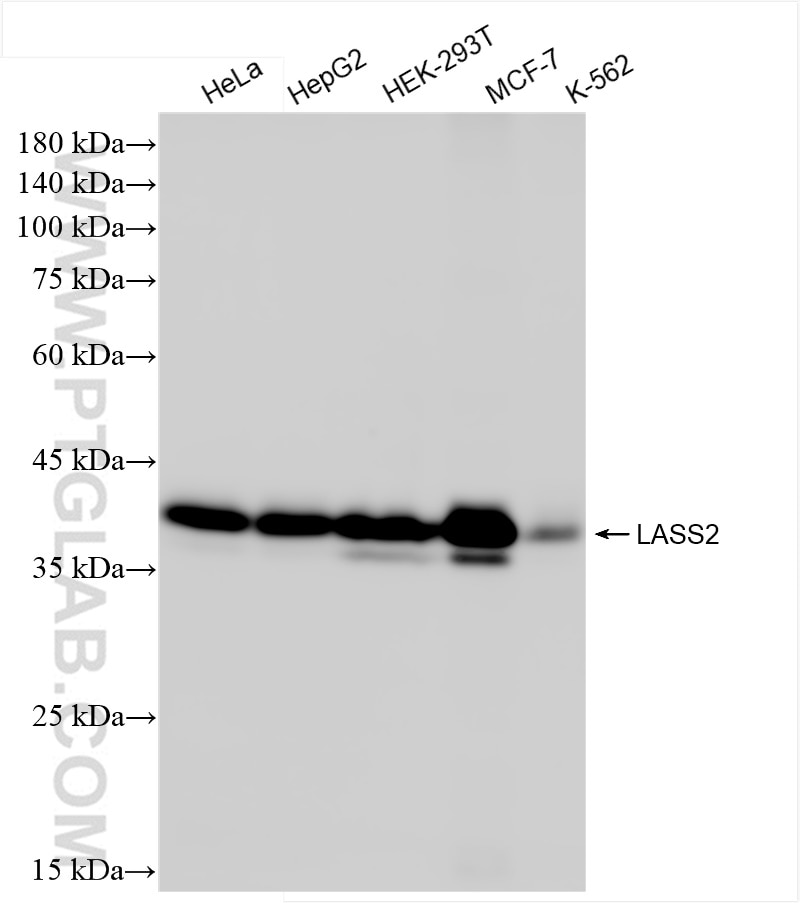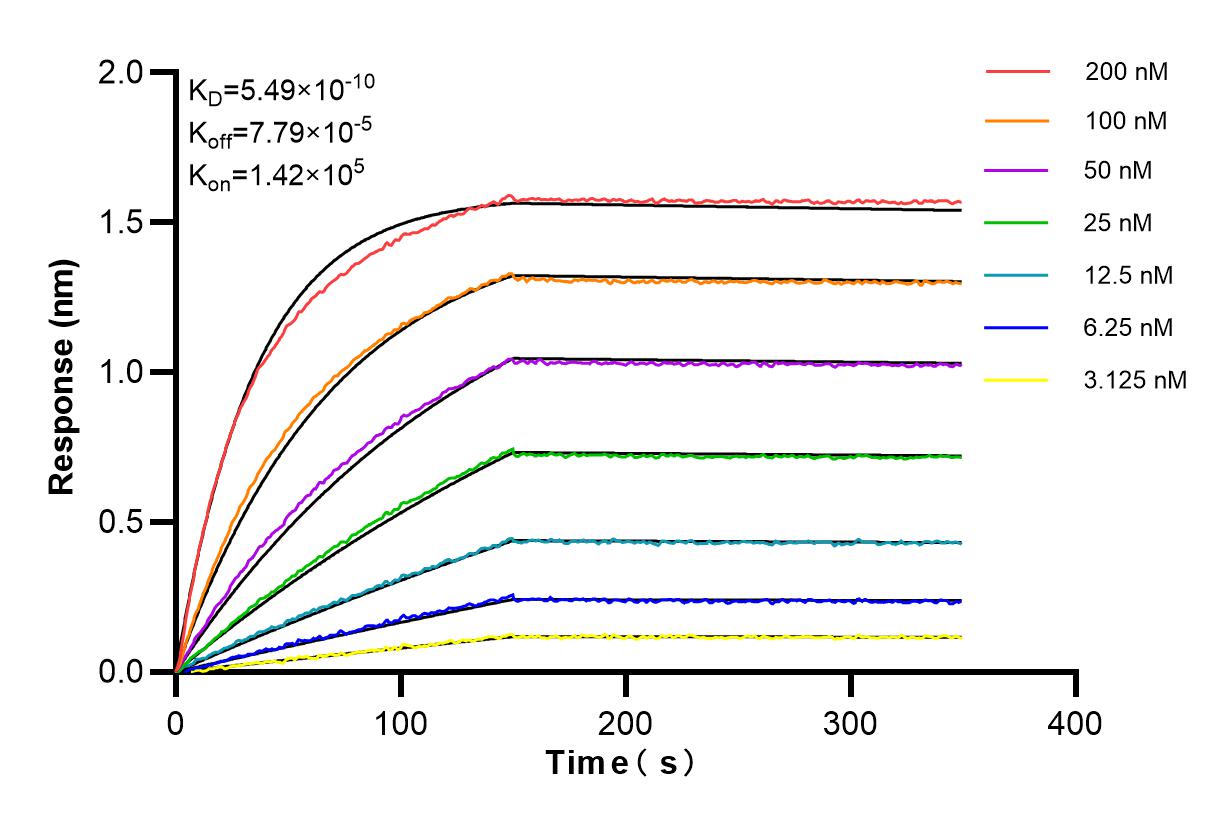Tested Applications
| Positive WB detected in | HeLa cells, HepG2 cells, HEK-293T cells, MCF-7 cells, K-562 cells |
Recommended dilution
| Application | Dilution |
|---|---|
| Western Blot (WB) | WB : 1:2000-1:16000 |
| It is recommended that this reagent should be titrated in each testing system to obtain optimal results. | |
| Sample-dependent, Check data in validation data gallery. | |
Product Information
84514-4-RR targets LASS2 in WB, ELISA applications and shows reactivity with human samples.
| Tested Reactivity | human |
| Host / Isotype | Rabbit / IgG |
| Class | Recombinant |
| Type | Antibody |
| Immunogen | LASS2 fusion protein Ag14151 Predict reactive species |
| Full Name | LAG1 homolog, ceramide synthase 2 |
| Calculated Molecular Weight | 380 aa, 45 kDa |
| Observed Molecular Weight | 40 kDa |
| GenBank Accession Number | BC010032 |
| Gene Symbol | LASS2 |
| Gene ID (NCBI) | 29956 |
| RRID | AB_3672021 |
| Conjugate | Unconjugated |
| Form | Liquid |
| Purification Method | Protein A purfication |
| UNIPROT ID | Q96G23 |
| Storage Buffer | PBS with 0.02% sodium azide and 50% glycerol , pH 7.3 |
| Storage Conditions | Store at -20°C. Stable for one year after shipment. Aliquoting is unnecessary for -20oC storage. 20ul sizes contain 0.1% BSA. |
Background Information
LASS2, also known as TMSG1, is a novel suppressor of human cancer metastasis. As one member of LASS family, including LASS1-6, LASS2 mRNA is at the highest level of all LASS members, and has the broadest tissue distribution, particularly abundant in the liver, kidney and brain in mice. The biological roles of LASS2 include protection from aging , hepatic INS resistance, and hepatocellular carcinoma (HCC) progression. LASS2 has been correlated with the degree of invasion and recurrence of carcinomas of the prostate, liver, breast and bladder.
Protocols
| Product Specific Protocols | |
|---|---|
| WB protocol for LASS2 antibody 84514-4-RR | Download protocol |
| Standard Protocols | |
|---|---|
| Click here to view our Standard Protocols |





